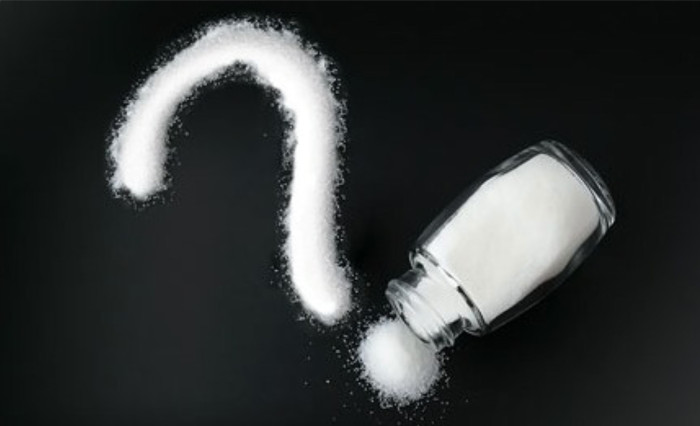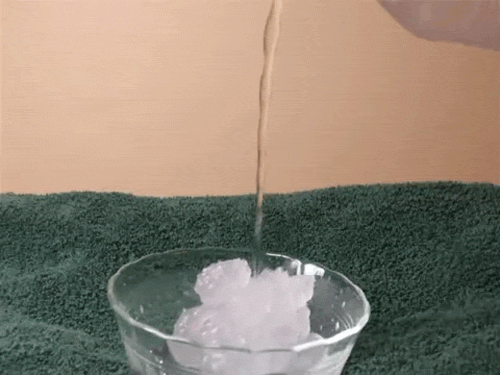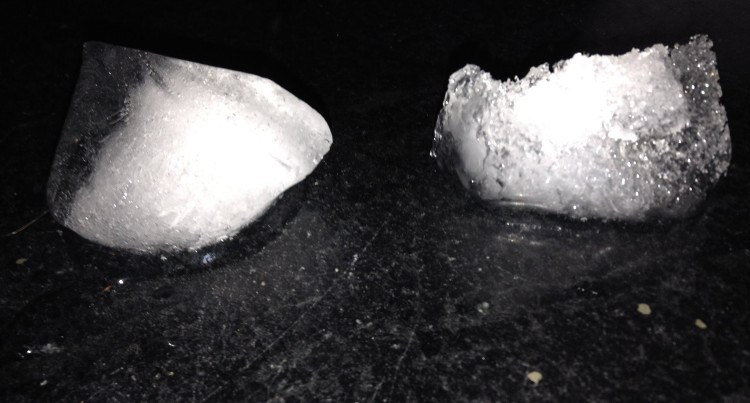Why can salt dissolve ice quickly?
In fact, the use of salt to melt ice does not only appear in life tips or fun experiments at home , but every year more than 20 million tons of salt is still being used by people and governments in countries. Cold lands used to 'handle' snowpacks hinder their lives.

Salt can thaw water freezing effectively.
Having a temperature only equal to the ambient temperature but why can salt dissolve water that has frozen so efficiently? To answer this question, we first need to understand the freezing mechanism of water!

At 'Freezing Point' , the surface of the water body will remain liquid.
In theory, when the ambient temperature drops to 0 degrees C, water will begin the process of transitioning from liquid to solid. This heat level is also known as 'Freezing Point'. At 'Freezing Point' , the surface of the water body will remain liquid, while the bottom has turned into a solid. The whole mass of water will freeze completely when the temperature drops further. Conversely, if the environment warms up, it will gradually shift to liquid.
Going back to the problem at the beginning of the article, when we add an ionic compound that is salt to the ice block, the molecules of water and salt will interact with each other. Consequently, the water's 'Freezing Point' is no longer 0 degrees C, but will be lowered. This means that a temperature below 0 degrees C is needed to keep water in solid form. The surface of the ice is in direct contact with salt, so the temperature of the 'Freezing Point' is naturally pushed down. Therefore, this part will be dissolved first.

The surface of the ice is in direct contact with salt, so this part will be dissolved first.
The special interaction between the salt and water mentioned above can also be easily observed at the two poles of the Earth. In these areas, although the ambient temperature is down to a few dozen degrees Celsius, only a fraction of the seawater surface is frozen, while most still remain liquid.
- Create new materials that 'vanish' as soon as they're exposed to the sun
- Little things to know about salt
- How to make pure white salt without scum, crispy delicious standard science
- Things you don't know about Himalayan pink salt
- Eating too little salt is also harmful to health
- Brilliant wild salt lake in Crimea
- Application of clean salt production in sand salt exposed to sand
- The mystery of mummies of
- Did you know how to use salt properly?
- Eating too much salt increases the risk of death
- The cave salt preserved the body of the whole person 2,200 years
- Be careful when using salt
 'Fine laughs' - Scary and painful torture in ancient times
'Fine laughs' - Scary and painful torture in ancient times The sequence of numbers 142857 of the Egyptian pyramids is known as the strangest number in the world - Why?
The sequence of numbers 142857 of the Egyptian pyramids is known as the strangest number in the world - Why? History of the iron
History of the iron What is alum?
What is alum?